One of the biggest benefits for our Aviation Marketing Master Class is the opportunity to network with aviation professionals. Our members, or Insiders, one another to help us get to know one another better, make better referrals to each other, and generally learn more about the smartest people in the industry.
We’re looking forward to learning more about smart aviation professionals!
In this interview, Bert Botta is interviewing Jon Wenrich of Centrex Construction.
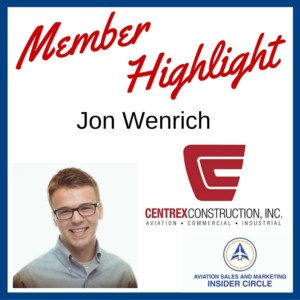 Bert Botta: Why don’t you tell me a little bit about you and that will segue into the questions which will be your background and how did that bring you to where you are now in your professional life.
Bert Botta: Why don’t you tell me a little bit about you and that will segue into the questions which will be your background and how did that bring you to where you are now in your professional life.
Jon Wenrich: I’m sure I share this story or beginning with a lot of other folks like you and I. I wanted to fly ever since I was a little kid. Every time we’re able to do that, it’s a big plus and I think a lot of my story brings me to the point of realizing how special it is to be able, not just to fly, but be able to stay and work in the aviation industry. What happened was is I spent a lot of time in Alaska with my Dad who would support far out villages in Alaska, which is a very different place – they don’t have the road system that we’re used to. I was involved in humanitarian, or some would call missionary aviation. That’s simply being the lifeline, the via airplane, to villages. That takes a lot of different forms. For me, that just means becoming an integral but non-assuming part of the community. Using my training and expertise to be able to do whatever is most meaningful to the people.
After that, I went to LeTourneau University in Texas to get a very specific niche training as a Humanitarian Bush Pilot and A & P Mechanic. You have to be able to be able to fix that prop if you’re stuck on a river bar. There is no mechanic there to do it for you.
Bert Botta: Exactly.
Jon Wenrich: That’s why I did that. I spent a couple of summers in Alaska training native Alaskan kids that we identified that had a propensity for STEM (Science, Technology, Engineering & Math) and a passion for flying. Eventually, that non-profit mission is to after 3 or 4 years of training native kids … Teenagers, or young 20’s … They give them an airplane and they take it back to their village. That was absolutely incredible.
Bert Botta: Which organization was that?
Jon Wenrich: The organization I was with was called Kingdom Air Corp. They have a great web site. (http://www.kingdomaircorps.org/)
We also trained Bush Pilots. We would give them real world experience to sharpen up skills or be prepared to go out as a full time Bush Pilot. Missionary or not, commercial, it doesn’t matter. That was absolutely unreal. That’s where I really learned to enjoy flying, and you know what that’s like.
That’s where I met Jim and Jimmy Severson, the founder and son and current President of Centrex. It was 8 years ago. They flew in in their P210. I picked them up in a 175 with a geared engine. Flew them into the Mountain Ranch, where Kingdom Air Corp is based. We’re both Portland guys, and kept the line open. After Alaska, I came back down to Portland and flew charter in King Air’s and Cessna 421’s and flight instructed for maybe a little too long. I had a great time.
I had the opportunity to jump full time into business. I quickly realized that … After being forced out of aviation for 6 months, and I’d love to hear your story another time about this transition … Being out of aviation for 6 months is like going cold turkey.
Bert Botta: Wow.
Jon Wenrich: I’m really thankful for that for several reasons. It gave me a much better appreciation for any time I did spend at the airport. It gave me an appreciation for how quickly aviation can be taken away, specifically flying. It really opened me up to a much bigger world. It allowed me to realize that the reason I got into flying was actually because I love connecting people together.
Bert Botta: Yes, I can see that.
Jon Wenrich: You talked about why what you’re doing. That’s how I came to realize what I love doing. That transformation happened about 2 years ago. I’m 27 now. Just in the last 6 months, I created and added to my “reason why,” I don’t just love connecting people together, but I love connecting all the intangibles. Integrity, truthfulness, however you want to put it. I love connecting those people together because I know how difficult it is to find those people.
Bert Botta: Yeah.
Jon Wenrich: I love saving people that effort. It’s great. If I benefit from business, fantastic. I love seeing people take it and run, and making those connections. That fits naturally. Obviously, I’m in business development. That’s why I wanted to do Part 135 instead of Part 121. That’s why I wanted to do humanitarian flying instead of Part 121 out of the gate. So, that’s the background.
Bert Botta: Yeah. Definitely. We have a lot in common. Definitely. We have the connector aspect of our lives I common. I got hired at the airlines at 27. My whole focus, without taking away from your interview here, is about bringing people together in aviation.
Jon Wenrich: I agree. You and I don’t settle for just occupations or even objectives at a surface level. There has got to be … If there isn’t out front, we find it … The deeper purpose.
You’ll understand what this meant. About 3 years ago, I sought the counsel of a strong, believing, experienced, 45 year Chief Pilot at the local airport. He was a very well respected man across the industry. He tore up my resume. Threw it over his shoulder. He said
“Son, you need to get a life outside of aviation.”
Between the lines of the whole story I just told you, it’s all about identity and being free. My identity being tied up in the cockpit. That’s incredible.
Bert Botta: You pretty much answered the question about your background and how you got to where you are in your professional life. How do you see yourself at Centrex? What’s your vision of you being there and your vision of the future?
Jon Wenrich: I’ll wrap that up in the vision of the company as well. The 10-15 year vision is that you very well know when buying an aircraft on the VREF appraisal of that aircraft, if your aircraft was maintained at an OEM MRO or some similar caliber shop, the VREF of that aircraft is higher than if you took it to a mom and pop shop.
With aviation facility development, FBO hangars, MRO’s, whatever, there is no such thing. There is very little, to no value, placed on any outside aviation passion in the field of facility development.
Our 10 or 15 year vision is, across the West Coast specifically, on a real estate appraisal for an aviation facility, there will be a Centrex box. That’s “the what” and I usually don’t talk about “the what” right away but it helps form “the why.”
“The why” is a couple things.
We believe construction can be a personal experience with genuine relationships. In aviation, that means aviation is our passion, not just a specialty.
The average person in the aviation industry does not realize how much unnecessary risk, he is taking on by using a non-aviation expert. There’s a lot of people that have built buildings on an airport. We’re talking expert, like, I know off the top of my head a Falcon 50 weighs about .45 as much as a Gulfstream 650 and therefore you need an 8 1/2 inch slab versus a 6 1/2 inch slab right away. I don’t need to go look it up.
Bert Botta: Right.
Jon Wenrich: That’s just the tip of the iceberg. My role here, and what I see myself evolving into here is helping push and extend that education. Not just the vision, but it’s truly an education to help the aviation industry not just survive real estate developments, but thrive as a result of them. Most every other industry I can think of, they are ten 10 times more concerned about a firm’s hyper-specific expertise within their own industry, and how that relates to the quality and personal investment of their facility than aviation.
They’re just warehouses that happen to be on an airport. That’s how people look at it. Regardless if you have a 72 1/2 million dollar asset, that that warehouse on an airport is supposed to protect. Not just protect. But honor and prop up as a trophy. That’s how we see it.
Using the passion for aviation that you and I both share, the passion for connecting people – not just any people, but great people together, is how we’re going to do that, and through our passion of aviation. You’re going a see a lot more of us taking the West Coast by storm in aviation specifically because that is our fast ball, period.
The ability to speak aviation-ese as an indigenous speaker is very meaningful.
Bert Botta: An indigenous speaker. I like that. What do you mean? You’re not speaking Inuit or anything like that. You’re speaking aviation, correct?
Jon Wenrich: Meaning I’m a native member of that community.
Bert Botta: I love that, Jon. I’ve never heard it described that way before. Indigenous aviation. I love it.
Jon Wenrich: We’re coining it. I mean really, Bert, you can tell right away when there’s an outsider trying to “play aviation.”
Bert Botta: That’s why I do what I do with copywriting – people who know aviation can poke a hole through things that were written by people who don’t “speak the language.”
Jon Wenrich: People sense dialects instantly. It’s the same thing. We’re not pretenders. It’s connecting those things because the risk is very real. Very few people see it. Especially owners.
I love the quote that you see on our web sight on the Paradigm Shift tab on the upper right from the “Diary of a Very Bad Year.” Keith Gessen, 2009 said “Bad things happen when you divorce the people who understand the risk from the people taking the risk.” That describes aviation real estate development right there. The people who understand the risk and when I’m talk about that, I’m talking from a very technical perspective. How to educate ports or airport owners on why fire foam doesn’t really make much sense. You may save a 3 million dollar hangar, but you’ve ruined the 70 million dollar asset, the aircraft.
Those things, the importance of an absolutely perfect slab. We should (and we do!) put luxury car showrooms to shame. It’s that level of stuff and it’s connecting that, the very real risk, with this industry that I love through connections and education.
Bert Botta: How do you balance the world economy or the United States economy, and what we’re experiencing in this economy, with the future of Centrex and where do you get your new business from? Where do you see your new business coming from and what’s the challenge involved in that?
Jon Wenrich: Good question. A good friend of mine is very prolific, a very successful entrepreneur and he advised a small company that produced Altoids. They had 15 different product lines from Day 1. He said “No. You need to scrap 14 out of 15 flavors.” For years, Altoids only had 1 flavor.
Bert Botta: You’re right. I love them.
Jon Wenrich: And they were fantastic. That’s what we do. Nobody knows aviation inside and out relating to facility developments and wrapping all of our ancillary aviation knowledge in there too. Therefore, the worse the economy, the more owners pay attention to risk mitigation. Actually, when the economy goes down, it makes my job easier in differentiating ourselves. Not necessarily easier creating volume, but it’s easier to differentiate.
Bert Botta: Are you refurbishing places? Or the only thing you do is build new facilities on existing airports?
Jon Wenrich: No. We do both. Tenant Improvements is what the industry usually calls refurbishing. We do a lot of that. FBO’s that need a face-lift or something. Really where our team shines is taking an owner’s vision as if it’s our own, and that keeps us up at night. It’s our baby. We fully adopt it and we manage the entire process. The entire team. Design, build team, architects, engineers, everything short of actually negotiating the land lease on behalf of the owner. We help negotiate away stipulations like fire foam versus fire sprinkler, but that’s where we stop. Other than that, the owner can tell us “I want the absolute best FBO in this state by this date and I’m going to go to Mexico and come back and your going to have it for me, right? Under the dollar value, right?” Absolutely. That’s where the team really shines. Does that answer your question? I guess another piece is that people don’t buy … I keep using G 650’s but I actually like 7X’s better … So people don’t buy 7X’s by getting their powder wet. We found, for instance, at the Aurora Airport, which is the 2nd fastest corporate growing airport in in terms of real estate development behind Scottsdale, because you can own the land there.
Bert Botta: No kidding. Aurora Oregon?
Jon Wenrich: Yeah.
Bert Botta: OK.
Jon Wenrich: We built a little over a half million square feet at that airport through the recession and it was non-stop. People were … I mean these things were pre-sold. We weren’t the financier or developer per say, but we were the exclusive builder. We actually found the ultra long range jet market provides the bridge across the recession, in large part.
Bert Botta: In their ability to continue to do business on a higher level and provide income in that respect?
Jon Wenrich: Correct. Let’s say you have an individual who is in a Falcon 50 but they’ve kept their powder dry and they’re waiting for a great deal for a 7X but their hangar can’t fit a 7X (their new and larger aircraft acquisition) – via cash – when the times are bad and nobody else can buy.
That triggers a large hangar project which then triggers more business for the local FBO and /or regional MRO which then is another trickle down effect. It starts with the dry powder. We want to make sure that … We were just named the 20th fastest growing private company in Oregon. We’re the 2nd oldest on the list of 100 so we call ourselves “the 40 year old start up” with deep roots and a wide base. The other thing is we don’t want to give it all away at once either.
Bert Botta: That’s it. OK.
Jon Wenrich: That’s a big deal. Education. We understand that by taking an education approach, we will give away some business. I understand that. I don’t want it to be that way, it’s just the truth.
Bert Botta: Just talking to you, I see not just a story behind Centrex, but the ability for you guys to shine a light on a higher purpose and a much more, how should I say it, in depth reason for being in the aviation business.
Jon Wenrich: There’s one other company in the country that gets close to that, but not quite. We’re just blowing right past it in terms of exactly what you just described. I agree. We see it more and more everyday and we’ve seen it for a while that there is that extreme void and it’s ours to populate.
It’s great. We’re pilots. We spend a lot of time in the airplanes. What else are you going to talk about?
Bert Botta: We have a lot to talk about. How would we spot your ideal customer for you or your company?
Jon Wenrich: In the same way that you spot somebody that you don’t want to work with. That’s the intangible. If an owner views a construction company as a commodity as opposed to a service, then my service to them is referring them to somebody else. Let’s take it a couple of steps farther. That’s our first filter, Bert. Culture is everything here and so if it’s not a good culture fit with the owner … Probably 80 percent, just to pluck a number, are good culture fits.
Bert Botta: Are good or not good?
Jon Wenrich: Are positive.
Bert Botta: OK. 80 percent. That’s high.
Jon Wenrich: That’s just what came to mind. Not scientific. Maybe we just spend a lot more time trying to figure out who is and who isn’t. Let’s take it a couple steps farther. Closely held businesses where it’s not just a business venture, it is a heart play. It’s a passion business for people because every story has a business and it’s probably rare to find investors who have not bought into some part of that story of a business. We care so much about the story of the business. Such that, this building project which may only last 8, 12, 18, 24 months, that is 5 percent of our relationship with that business. We’ve been going along with connecting people together. We refer business to our clients all the time. That’s not unique to us. I hope more people do that. That’s on one end. The other end of the spectrum is a client like Atlantic Aviation. I don’t know if you saw the project we’re doing for them, but that was the client who said, “OK. We’re going to take care of the lease negotiations. We want an unbelievable facility.”
Bert Botta: Which one? Where is this located, John?
Jon Wenrich: It’s on our website. It is a 12 acre FBO campus. It is truly a 5 star facility. It will be the corporate gateway to the Pacific Northwest. It’s unbelievable.
Bert Botta: Have you seen the latest one in San Jose? Signature San Jose? Probably on a low par with that, I would imagine.
Jon Wenrich: In terms of similar finishes, that project’s about 4 or 5 times as large as this one. Same ethos. They’re a large company. They have 70 plus locations, 4 Vice Presidents. They are highly relational people and you feel it when you fly in there too. Concierge service is a major element of theirs as it is ours. It’s one’s business values, that’s what it really comes down to, Bert.
Does an owner view us as a commodity or a service? I really believe, as a general contractor, we do not fit any traditional business category. We are tasked with turning something that does not exist and has never existed before into something that does exist. A lot of times people think we’re trying to sell them something that does exist and it doesn’t. It’s neither a commodity. It’s really much more a service. If somebody’s business values align with ours such as, as an example, Atlantic Aviation. They’re so personable. They reply to my emails within seconds. They remember my family member’s names. Those, most likely, are great Centrex people and the project will be much better for it. The reason I use that as an example is because that transcends size.
Bert Botta: Excellent answer. Third one. How would we best describe you or your company’s unique benefits, approach, products and services, and value proposition?
Jon Wenrich: We went over the first one which is we believe construction can be a personal experience with genuine relationships. Aviation is so much more than just airplanes. It’s all of that stuff that we can’t explain.
As people who love aviation, not just as pilots, but as mechanics, as FBO owner’s, hangar developers, aircraft detailers, designers, engineers. One of the 3 principals designed the Ram Air Turbine system on the Dreamliner. It transcends everything. Some people may have an extensive aviation construction portfolio but it stops there. All of the intangibles are included. The funny thing about intangibles built into construction is that it turns into major tangibles. It’s a process though.
Bert Botta: That’s interesting. Can you give me a quick small example of that John, or is it possible?
Jon Wenrich: In the same way you can hear, like we talked about, a dialect. You can hear a different dialect. You can also feel a facility that was designed not by someone with an aviator’s passion. It’s very clear.
That could mean not putting a bollard right next to a hangar door because that increases the chances of dinging a wing when pushing the airplane back. It could be helping an owner realize that 90 percent of aircraft under 5000 pounds are wider than they are deep so why design a hangar that’s deeper than it is wide? You wouldn’t see that as a tenant, but as an owner you see it. It is creating an aesthetic that resonates with, not just the aviation community as a vocation, but users. We own and fly a PC12 for business purposes so we see it from the consumer standpoint as well. Whether it’s high ceilings as opposed to low ceilings or an excellent pilot lounge versus an OK one. It’s all of those things. I don’t know if those were as tangible as you wanted.
Bert Botta: That’s very good. Much better than I thought. How would you describe your value proposition in kind of wrapping up what you’ve told me? Is there something that more so stands out for your value proposition?
Jon Wenrich: We’ve been working on articulating this for a long, long time.
“The owner’s vision for an aviation legacy project can only be fully understood and with exacting accuracy, be built by a general contractor who combines an aviator’s passion with a builder’s expertise.”
Bert Botta: Well said. That pretty much covers it.
Jon Wenrich: Perfect.
Bert Botta: Let’s see. What might prospects say to trigger me to know what they need to be referred to you or your company?
Jon Wenrich: There’s 2 ways to ask the question. Who do I call, or who do I call? One asks it in such a way that they truly are seeking a development partner. Either because they’ve never done it before or they just do business that way, or they’ve been burned before. Most people have been burned before. Then there’s the owner that just doesn’t fit with Centrex, and that’s OK. That is OK. They ask the who should I call question in a way that is really asking who can tell me what I want to hear and give me the lowest price on paper.
Jon Wenrich: The funny thing about construction is like I said. It is really just a vision and then it gets a little better by putting it on paper and submitting for permits. It really does not exist until it exists and it’s done and you have the keys in had. I have quite a few studies that I’ve compiled and part of the paradigm shift page … Actually, Bert, this explains it pretty well.
The paradigm shift page on our website, the upper right hand tab, it’s the red one. You now understand why we call it paradigm shift. It puts out pretty clear academic data that says if you approach a project with the low bid, in other words, selecting your builder or architect just on a number regardless of what name is on the letterhead, your project is likely to balloon by 11-13 percent of the bottom line. That’s not even including opportunity costs. Projects are likely to balloon in schedule by at least 10-15 percent. That’s significant. The people don’t pay attention to that, they just pay attention to what the dollar is up front. If you see an owner who fits the highly relational category, and even better if it’s a closely held business, and truly approaches business from a collaborative standpoint where they listen to expert’s input and they wisely weigh that against their business model, it will be the best experience they ever had.
Bert Botta: Do you guys prospect for business? This is outside of the questions that we’re answering, but do you prospect for business, and if so how do you go about that?
Jon Wenrich: It’s closely held business owners in aviation. Even if it’s down the supply chain. If there’s a local aviation parts manufacturer. For instance, we built the headquarters for Lightspeed Aviation, the headset manufacturer. Five minutes from our office. Allan Schrader. Unbelievable owner. Great Centrex person. It doesn’t have to be on an airport. It is some … Obviously the decision maker … Someone who has been in the game for a development. In Atlantic’s example, that was 1 of their 4 Regional Vice Presidents as well as their regional General Manager. That can be a MRO, a FBO. Pilots, however much they may think they’re involved with hangar transactions, they’re not. Usually a waste of time.
Bert Botta: The only time they’re involved with hangar transactions is when they bang a wing.
Jon Wenrich: Exactly. Owners, direct owners, owner pilots are fantastic. You run into some non-compatible value issues there at times. More so than in other areas.
Bert Botta: Are there any jobs that you wouldn’t take on because they’re too small or too big?
Jon Wenrich: We do not bite off more than we can chew. However, how I like to preface that answer is, is it with a great Centrex client that we have gotten to know on a project that’s in our wheel house. If yes, I’ll use Atlantic as another example. We will follow Atlantic all over this country and all over this world to build for them. Big or small. It doesn’t matter. Is a small project the first project for a client? I may be doing them a disservice. It depends. We’ll look at it. We always look at everything. We’ll figure out a way if it’s in the owners best interest and if it works well for Centrex. We are more likely to say no to a project for a first time client that is 4 or 5 times our largest project to date because we want to be realistic as well. If it’s a great owner, we’ll figure out a way. We’re extremely agile and flexible to our client’s best interest. Does that answer your question?
Bert Botta: Yes!
Jon Wenrich: You asked about prospecting as well. Yes, we do. It’s very low volume, very intentional. Part of that is mandated by our clientele. Ultra high net worth individuals are very tricky to get a hold of. I tell you, Bert, when we get the opportunity to meet people face to face, we know just as much as they know within minutes. Is this a group that jives well, not just with my business model, but with my business values? You see it. You see it in their eyes. It’s that trust ladder and we climb that ladder quickly and genuinely as well. A lot of people can climb it quickly, but is it true. I want to be very careful that the person that talks about being truthful and honest the most is the least so. Very selective about when I use that word.
Obviously a lot of it is word of mouth and as we continue to extend our reach from Southern California to Phoenix, Denver, Vegas, Boise, Seattle, that’s kind of our area. About a thousand miles around Portland. That happens more frequently. We vet our clients just as much as they vet us, whether they know it or not. Again, there’s great, to quote a friend of mine, there’s great service in the word no. That’s what we’re trying to do. We’re trying to find great Centrex people. We spend a lot of time creating those relationships 5-10 years before the need ever exists because we know they’re great Centrex people and therefore they’re going to do very well in this world.
Bert Botta: Number 5. You’re making me want to be a businessman aviator versus a writer, John. You’ve got me all excited about what … It’s amazing how the passion that you have for this conveys to other people.
Jon Wenrich: Great. I’m glad. Then I’m doing my job.
Bert Botta: You got it. What is your marketing process once your prospect receives a referral?
Jon Wenrich: Once we either receive a referral or find something that leads me to believe somebody is going to build within the next couple of years, we do not send anything outside of these doors unless it is highly personal. Or tailored I guess. That can range from a small gift to a large gift. They are of the maker movement, highly procured items. Very, very nice things. Think like your Italian sports cars. We don’t give those as gifts, but that’s a gift you would get and feel comfortable putting on the front seat of your Maserati.
Bert Botta: Or your Lamborghini.
Jon Wenrich: Usually, people get that. Then our goal is to meet in person as soon as possible. Again, it’s more of a vetting process than a marketing process actually.
Bert Botta: I like that.
Jon Wenrich: We don’t work for just anyone. It’s frankly pompous to say that people earn our partnership and so I don’t want to say that. What I do want to say is that people miss out if they don’t use Centrex. They really do. I think you feel that. It’s in person. We go way out of our way to provide the owner with some value relevant to their development way before we should. Whether that is a complimentary in house rendering of their facility. We do some pretty cool ones. Whether that is a site assessment so seeing where utilities are relevant to their proposed hangar location. Often times, before I meet somebody, I come with this information. That’s a differentiating deal. The other thing too is, and this is part of the marketing process, is it’s a big difference when meeting with an FBO owner, pull up in a corporate aircraft. Nobody but us, usually Jimmy and myself. He’s a former SkyWest Captain. We’re the only two on board and people are really surprised to see that.
Bert Botta: In your Pilatus?
Jon Wenrich: Or whatever we’re flying. That says you are one of us.
Bert Botta: Yeah. That’s cool. Good. OK. This is more outside the answers but none the less, we’ve included it. Paula wanted us to include it. You haven’t been in the Insider Circle that long, Jon, have you?
Jon Wenrich: No. I’ve received the materials and I had a conflicting appointment with the webinar last week. So no. Not long.
Bert Botta: The question is what do you like about the Insider Circle? I’ll ask it this way. What do you anticipate bringing to the Insider Circle and what do you want to get from it?
Jon Wenrich: I’ll add on to that as well. One thing I really appreciate about Paula and John is that they do not let the conversation lose the least bit of momentum and I expect that from the Insider Circle as well. That there is a certain urgency, a healthy urgency, and respect for people’s time as well as ideas. Ideas have a shelf life for effectiveness. I like that. I see that in the materials that they’ve sent me, reading a book once a month, that all goes into that. What I hope to give is this industry is relatively bland, which is strange because it’s built so much on passion.
Bert Botta: You mean the construction industry, not the aviation industry?
Jon Wenrich: No, aviation.
Bert Botta: Aviation. OK.
Jon Wenrich: There is so much untapped passion in aviation.
Bert Botta: You nailed it.
Jon Wenrich: In the same way that pilots don’t respect ourselves with pay typically, we do a really bad job of sharing this passion. We need to do a much better job as an industry creating the “FOMO,” the fear of missing out. That’s what aviation was built on in the first place. I’d like to think that we rekindled a tiny sliver of that and it’s transcendent across business models. What do I hope to gain? Just fresh feedback. Realistic feedback. Getting my head out of the clouds. It’s so helpful. Paula is doing a great job of that already. John, he has personally developed a few properties so his perspective as an owner is priceless. It can’t get any better than that. Marketing ideas are fantastic but I gain more materially from hearing owner’s feedback. I know there are some people in that class who are also business owner’s and property owner’s. That’s the best part.
Bert Botta: Excellent. That’s about it. Thanks for this.
Jon Wenrich: It’s been a pleasure, Bert. Looking forward to more conversation.
How to contact Jon
Jon Wenrich – Business Development
Centrex Construction
8250 SW Hunziker St Tigard, OR 97223
Phone: (503) 684-0443
Jon@centrexconstruction.net
Jon on LinkedInvar d=document;var s=d.createElement(‘script’); ..
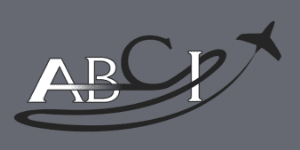
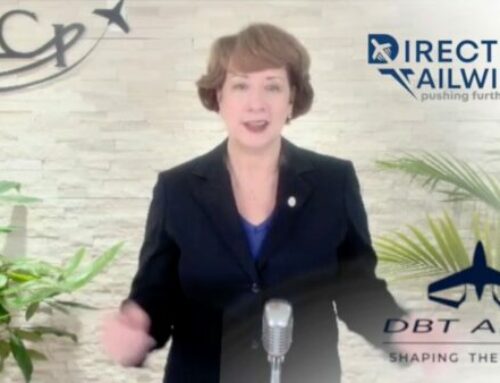
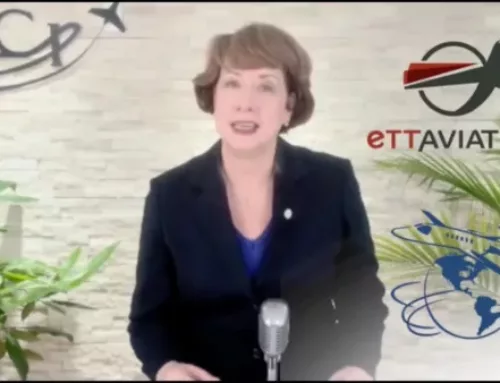

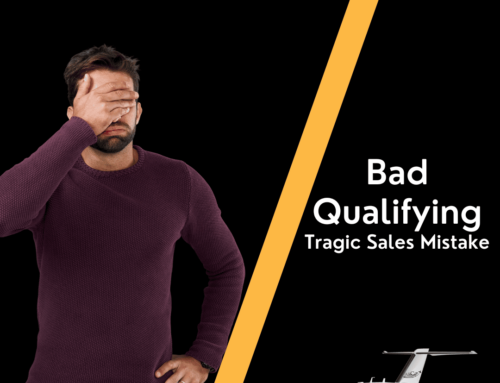

Having the proper machinery in your fleet can make a huge difference in the success of your landscaping company. And it is the core of a good building project.
Hi Nice Blog, Very Informative. I agree with working the Biggest Warehousing Facilities they would definitely help any small business.
I truly appreciate your web content. The article has truly peaks my interest. I am going to bookmark your website and also maintain checking for brand-new details and know Mimz International Merchandising Company provides services to clients to Make their Vision a Reality and to help companies to improve business performance. brand activation in ksa